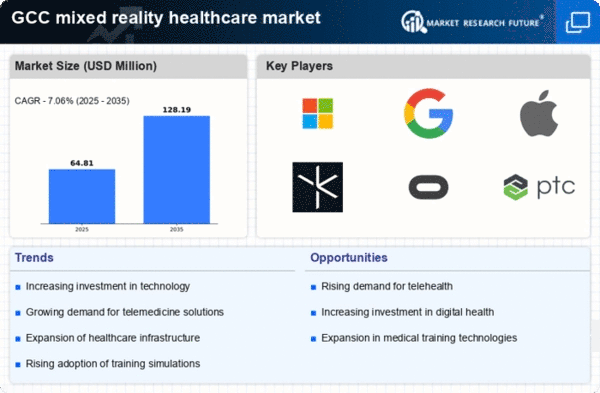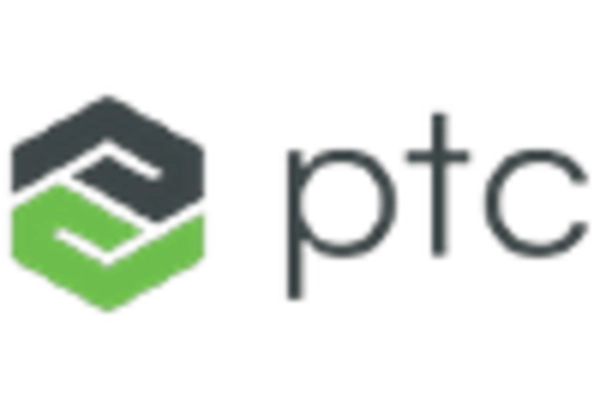Government Initiatives and Funding
Government initiatives play a crucial role in shaping the mixed reality-healthcare market. In the GCC, various governments are actively investing in healthcare innovation to improve service delivery and patient outcomes. For example, the UAE government has allocated substantial funds to support digital health initiatives, including mixed reality applications. This funding is aimed at enhancing medical training, patient education, and telehealth services. As a result, the mixed reality-healthcare market is expected to witness increased adoption of these technologies across hospitals and clinics. Furthermore, supportive regulatory frameworks are likely to encourage the development and implementation of mixed reality solutions, fostering a conducive environment for market growth.
Growing Focus on Patient-Centric Care
The mixed reality healthcare market is increasingly influenced by a growing focus on patient-centric care. Healthcare providers are recognizing the importance of engaging patients in their treatment processes, and mixed reality technologies offer unique opportunities to enhance this engagement. By utilizing immersive experiences, healthcare professionals can educate patients about their conditions and treatment options more effectively. In the GCC, patient satisfaction scores are becoming a key performance indicator for healthcare facilities, driving the adoption of innovative solutions. This shift towards patient-centric care is likely to propel the mixed reality-healthcare market, as providers seek to leverage technology to improve patient experiences and outcomes.
Technological Advancements in Healthcare
The mixed reality-healthcare market is experiencing a surge due to rapid technological advancements. Innovations in augmented reality (AR) and virtual reality (VR) are transforming medical training and patient care. For instance, the integration of AR in surgical procedures allows for real-time data overlay, enhancing precision and outcomes. In the GCC, investments in healthcare technology are projected to reach $10 billion by 2026, indicating a robust growth trajectory. This influx of capital is likely to foster the development of mixed reality applications, making them more accessible to healthcare professionals and institutions. As a result, the mixed reality-healthcare market is poised for significant expansion, driven by the need for improved training tools and enhanced patient experiences.
Rising Demand for Remote Healthcare Solutions
The mixed reality healthcare market is being propelled by an increasing demand for remote healthcare solutions. As healthcare providers seek to extend their services beyond traditional settings, mixed reality technologies offer innovative ways to deliver care. In the GCC, the telemedicine market is expected to grow at a CAGR of 25% from 2025 to 2030, highlighting the shift towards remote consultations and monitoring. Mixed reality applications can facilitate virtual consultations, allowing healthcare professionals to interact with patients in immersive environments. This trend not only enhances patient engagement but also optimizes resource allocation within healthcare systems. Consequently, the mixed reality-healthcare market is likely to benefit from this growing preference for remote healthcare delivery.
Collaboration Between Tech Companies and Healthcare Providers
The mixed reality healthcare market is witnessing an increase in collaboration between technology companies and healthcare providers. These partnerships are essential for developing tailored mixed reality solutions that address specific healthcare challenges. In the GCC, several tech firms are joining forces with hospitals and medical institutions to create innovative applications that enhance surgical training and patient education. Such collaborations not only facilitate knowledge exchange but also accelerate the development of effective mixed reality tools. As these partnerships continue to grow, the mixed reality-healthcare market is likely to expand, driven by the combined expertise of technology and healthcare sectors.
















